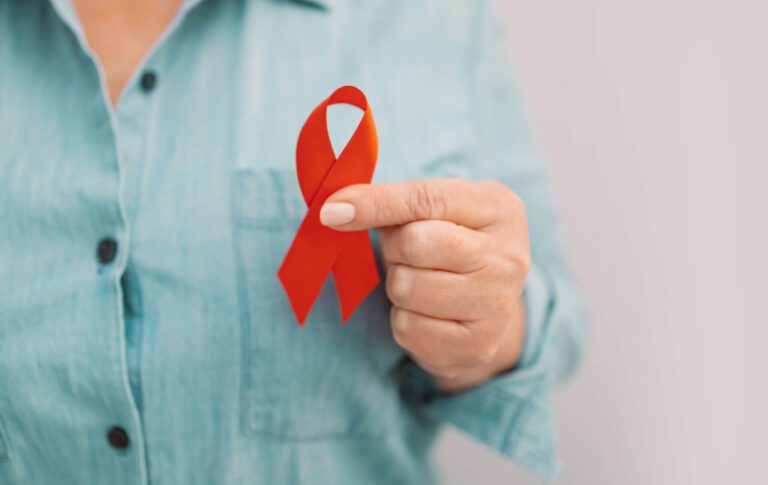Can STDs Spread Through Blood Transfusions or Organ Transplants?
When you think of a blood transfusion or an organ transplant, it’s natural to assume these procedures are generally safe. After all, they help save lives and improve health. But when it comes to the transmission of sexually transmitted diseases (STDs), many wonder if these medical procedures might expose individuals to additional risks. Could an STD be passed along through a blood transfusion or an organ transplant? This is a valid question, and it’s crucial to understand how both blood transfusions and organ transplants are linked to the spread of diseases, including STDs.
In this article, we will dive into how STDs are transmitted, the risks associated with blood transfusions and organ transplants, and the safety measures in place to reduce these risks. If you’re concerned about your health or need Jacksonville STD testing, keep reading to understand how these procedures work and what you need to know to protect yourself.
What Are Blood Transfusions and Organ Transplants?
What is a Blood Transfusion?
A blood transfusion involves transferring blood or blood components from one person (a donor) to another person (a recipient). This is often done when a person has lost a significant amount of blood, or when their body is unable to produce enough blood on its own due to various health conditions like anemia or surgery.
What is an Organ Transplant?
An organ transplant is a medical procedure in which a damaged or failing organ in a person’s body is replaced with a healthy one from a donor. Common transplants include kidneys, hearts, livers, and lungs. Organ transplants are often necessary for patients whose organs are no longer functioning well enough to sustain life.
Can STDs Be Transmitted Through Blood Transfusions?
The Risk of STDs in Blood Transfusions
The simple answer is that yes, it is possible to transmit certain STDs through blood transfusions, but the likelihood is very low. Several factors influence whether an STD can be passed through blood, including the type of disease, the blood screening process, and the donor’s health status.
The Screening Process for Blood Transfusions
To minimize the risks, blood banks and hospitals follow strict protocols for screening donated blood. Every unit of blood is tested for a range of infections, including:
- HIV (Human Immunodeficiency Virus)
- Hepatitis B and C
- Syphilis
- Other infectious agents
Because of this rigorous testing process, the risk of contracting an STD through a blood transfusion has become quite rare. However, there’s always a minimal risk, especially if the infection is in the window period (the time between exposure and detectable levels of the virus or bacteria).
The Impact of Technology on Blood Safety
Thanks to modern medical technology, the screening of blood donations has improved dramatically. In the past, there were cases where blood donations were not as rigorously tested, which led to the spread of infections. But today, the blood supply in most countries is considered very safe due to advanced screening tests and donor health assessments.
What About Organ Transplants? Can STDs Be Spread Through Them?
Risk of STDs in Organ Transplants
Organ transplants can also carry some risk of STD transmission. While it’s rare, an infected organ could potentially pass on a disease like HIV, Hepatitis B, or Hepatitis C. Similar to blood transfusions, the transmission of STDs through organ transplants is highly unlikely because of the medical safeguards in place. However, it’s essential to be aware of the potential risks, particularly when it comes to organs that have not been properly screened.
Screening for Donor Organs
Organ donation and transplant programs are highly regulated and typically involve thorough screening of both the donor and the recipient. Donors are screened for several infectious diseases, including STDs. This process helps ensure that any organ transplant performed is safe and minimizes the risk of passing infections, including sexually transmitted ones.
Before a transplant occurs, the organ donation center will conduct tests to determine if the donor has any infections, including HIV, Hepatitis, or any other sexually transmitted disease. Only organs that meet safety standards are used for transplantation.
The Role of Medical History in Organ Transplants
Another important consideration when it comes to organ transplants is the donor’s medical history. Doctors will evaluate the history of the donor’s sexual activity, drug use, and other factors that could increase the risk of disease transmission. This detailed screening process ensures that organs are safe for transplantation and that the recipient will not face unnecessary health risks.
Are Blood Transfusions and Organ Transplants 100% Safe?
While modern medicine has drastically reduced the risks of contracting an STD through blood transfusions and organ transplants, no procedure is entirely without risk. For example, there may be instances where a donor has an infection that is not detectable at the time of donation. Additionally, if a person receives a blood transfusion or organ transplant from an individual with undiagnosed or untreated STDs, there is a small possibility that the disease could be transmitted.
However, the medical community works tirelessly to reduce these risks. The thorough testing, screening, and evaluation of both blood and organ donations, along with stringent regulations, make these procedures safer than ever before.
The Role of Testing
If you are considering a blood transfusion or organ transplant, you may be wondering if there’s anything you can do to protect yourself further. While the risk of contracting an STD from these procedures is low, it’s important to be proactive about your health. If you suspect you may have been exposed to an STD, it’s always a good idea to schedule Jacksonville STD testing.
Regular testing is one of the best ways to ensure your health and prevent the spread of STDs. Hope Across The Globe offers reliable and confidential STD testing services that can help you understand your health status and take necessary precautions.
Steps to Protect Yourself During Blood Transfusions or Organ Transplants
Ask Questions About Screening
One of the most effective ways to protect yourself during any medical procedure is to ask questions. If you’re having a blood transfusion or an organ transplant, ask the medical staff about the screening processes that are in place. Make sure you understand the safety measures and how the risks of disease transmission are minimized.
Stay Informed About Health Risks
Understanding the potential risks associated with any medical procedure, including blood transfusions and organ transplants, is crucial. Being informed will help you make better decisions about your health care and prevent unnecessary anxiety about the process.
Get Tested Regularly
Even though the risk of STD transmission from blood transfusions and organ transplants is low, it’s always a good idea to stay on top of your health. Regular STD testing, like the services offered by Hope Across The Globe, ensures that you are aware of your status and can take steps to protect your health and the health of others.
Conclusion
Blood transfusions and organ transplants are generally safe procedures that can save lives. The chances of contracting an STD through either of these methods are very low, thanks to rigorous screening and testing processes. However, no medical procedure is without risk, and it’s important to be informed about how STDs can be transmitted and what precautions are take.
If you’re concerned about your health or want to ensure you’re taking the necessary steps to stay safe, consider getting tested for STDs. Hope Across The Globe offers confidential and accurate Jacksonville STD testing services to help you understand your health status and take control of your well-being. Stay proactive, stay informed, and most importantly, stay healthy!






